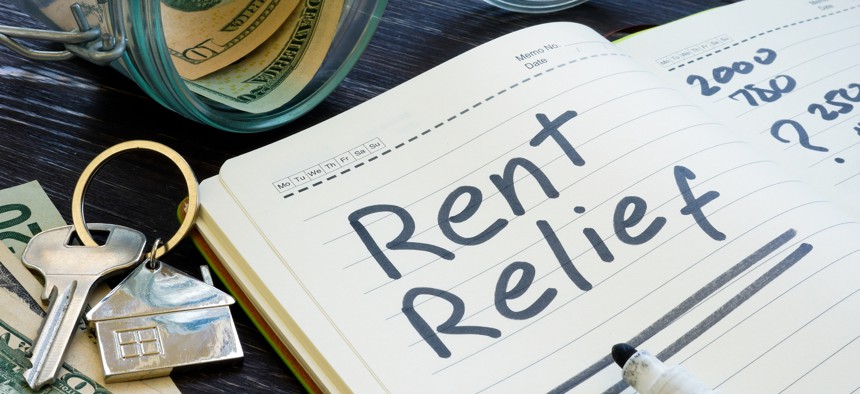5 Strategies to Help Residents Without Bank Accounts Get Rental Assistance

iStock.com/designer491
Unbanked tenants have a harder time applying for emergency rental assistance, along with difficulty accessing assistance if they do receive funds, according to a report.
Renters who do not have bank accounts have a harder time applying for emergency rental assistance, along with difficulty accessing assistance if they do receive ERA funds, according to a report by the National League of Cities. This includes challenges verifying income, rent payments or the impact of Covid-19 on their financial situation when applying for rental assistance.
Unbanked tenants may also face challenges when attempting to cash direct-to-tenant rental assistance checks, such as high fees, the report states.
According to the 2019 Federal Deposit Insurance Corp. report, 7.1 million U.S. households—about 5%—do not have bank accounts. This is common for low-income households, people of color and individuals with a disability, according to the FDIC.
A report from the Brookings Institution shows that 46% of Black people are unbanked or underbanked, which is over three times the percentage of whites (14%). Some 32% of Hispanics are also either unbanked or underbanked.
Here are five strategies cities can consider implementing to reach and serve unbanked residents with financial assistance, according to NLC:
Set Flexible Application Requirements
Lengthy application process requirements are barriers to the dispersal of ERA funds, and often pose challenges for unbanked tenants, according to NLC.
The U.S. Department of the Treasury has compiled examples of acceptable self-attestation forms for tenants to verify employment, household income, loss of income or rental obligation, which can be adapted by cities for their individual needs.
Cities can also offer targeted support to tenants with the application process, according to the report.
Partner with Local Institutions for No/Low-fee Check Cashing
Unbanked tenants may have to pay fees to cash assistance checks before paying their landlord, according to the report. To avoid fees, ERA program administrators can include alternative assistance, such as creating partnerships with check cashing facilities or local credit unions to reduce the transaction costs, says the National Low Income Housing Coalition.
When mailing direct-to-tenant assistance payments to residents, cities should include information about these partnerships and ways to take out cash without paying large fees, the report contends.
Offer Alternative Methods of Payment
While cutting checks may be the most common method for distributing direct financial assistance, many cities are leveraging alternatives, such as distributing prepaid debit cards, according to the report.
In 2020, Honolulu’s Office of Economic Revitalization issued $500 cash cards that could be spent at grocery stores and convenience stores, according to Star-Advertiser. Funded by the CARES Act, the cards were mailed to roughly 4,000 households that participated in the Household Hardship Relief Fund or other city-sponsored financial assistance programs, Star-Advertiser said.
Leverage Funding Streams
Recognizing that individual circumstances may prevent some households from accessing funds, cities should seek to integrate a range of funding sources that can meet diverse needs and eligibility specifications, according to the report.
Local nonprofit partners may be able to accommodate financial support that municipal programs cannot, depending on local or state regulations, or due to a household lacking certain documentation and banking access, the report says.
Connect Unbanked Tenants to Financial Resources
In addition to supporting unbanked tenants in accessing emergency rental assistance funds, cities can connect them with local financial empowerment resources and institutions, the report says. This includes providing information about how tenants can establish a relationship with a banking institution.
For example, Little Rock, Arkansas, provided access to low or no-fee checking accounts through bank partners for nearly 200 unbanked municipal employees impacted by Covid-19, who previously received paper checks for their biweekly payments, according to Bank on Arkansas+.
For more information from the National League of Cities report click here.
Andre Claudio is an assistant editor at Route Fifty.
NEXT STORY: Democrats Trying to Nail Down SALT Deduction Cap Repeal Plan





